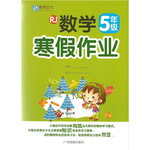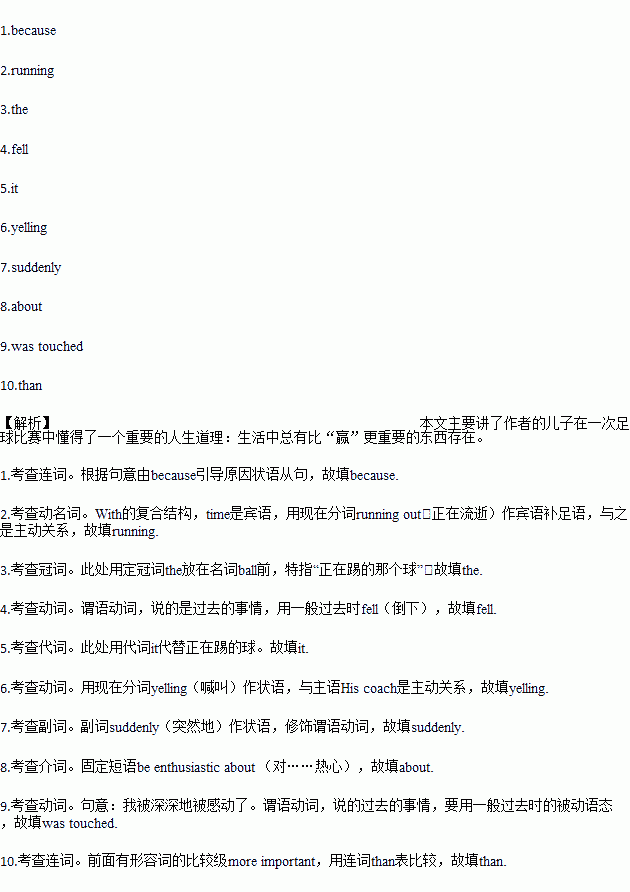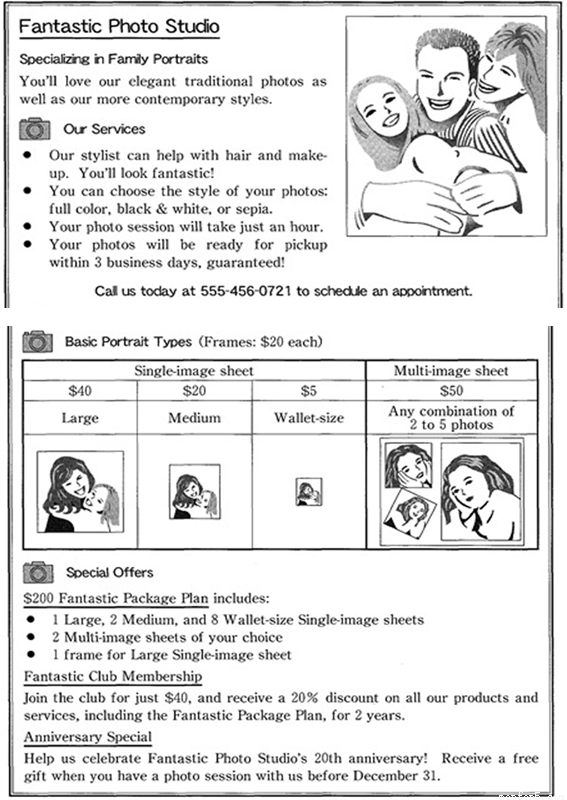题目内容
I will never forget watching my son play soccer in this middle school. My son was not a star player. In fact, he didn’t have the opportunity to play for long in each game,1. the rules at that time made sure everyone was involved. In one game, with the score tied and time 2. (run) out, he was playing a defensive position. The other team’s star player got 3. ball but my son was in his way. Somehow, when they met, the result was that the star player 4. (fall) on the ground and my son got the ball. He ran with 5. and had a clear path to the goal. His coach jumped up and down 6. (yell) “go” and most of the parents yelled for victory. When my son kicked the ball several yards towards the goal, he 7. (sudden) stopped and went back to the star player, helping him get up. When we all got enthusiastic 8. the game and forgot about the basic values of fairness and fun, my son helped a player of the other team. I 9.(touch) deeply. After the game, I hugged my son proudly. I was so glad that my son knew there was something more important 10.winning.
 黎明文化寒假作业系列答案
黎明文化寒假作业系列答案


 nd studied the crowd of people making their way through Grand Central Station. He looked for the girl whose heart he knew, but whose face he didn’t, the girl with the rose.
nd studied the crowd of people making their way through Grand Central Station. He looked for the girl whose heart he knew, but whose face he didn’t, the girl with the rose.